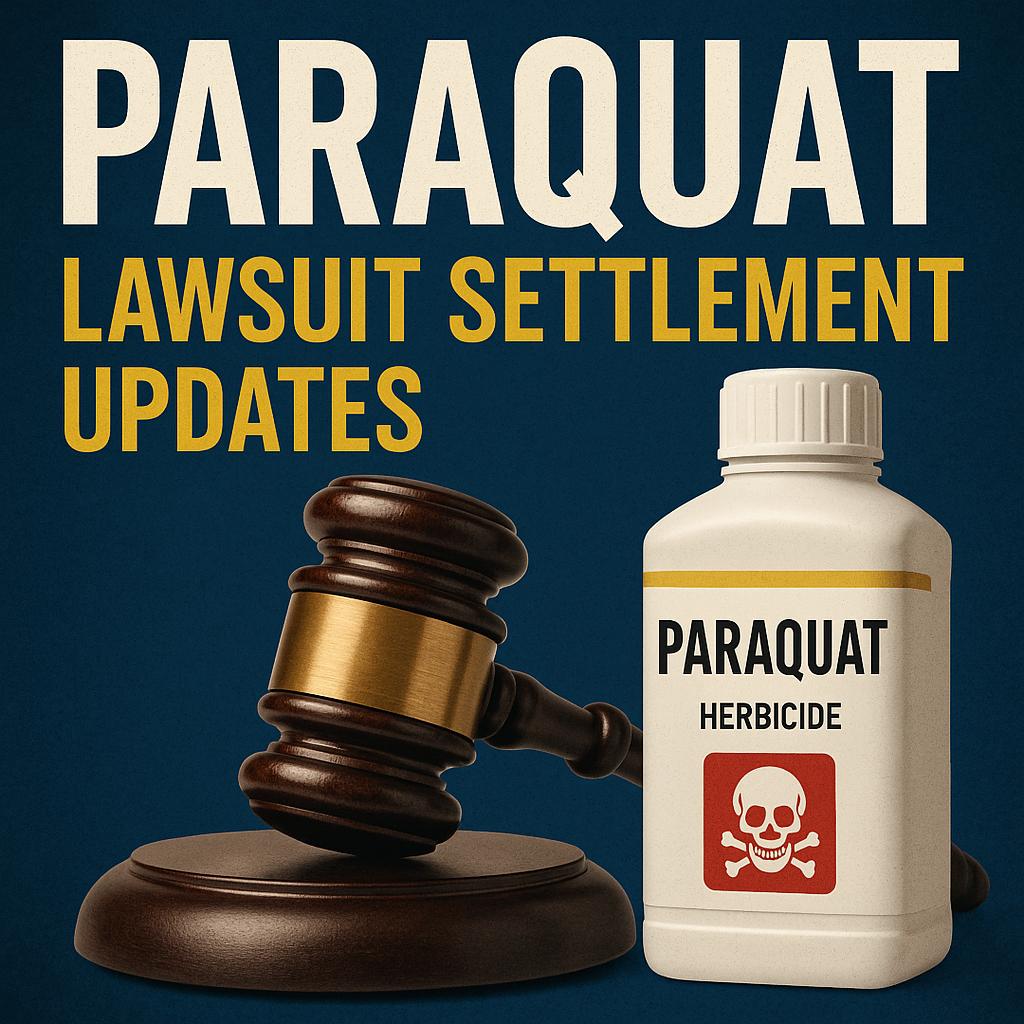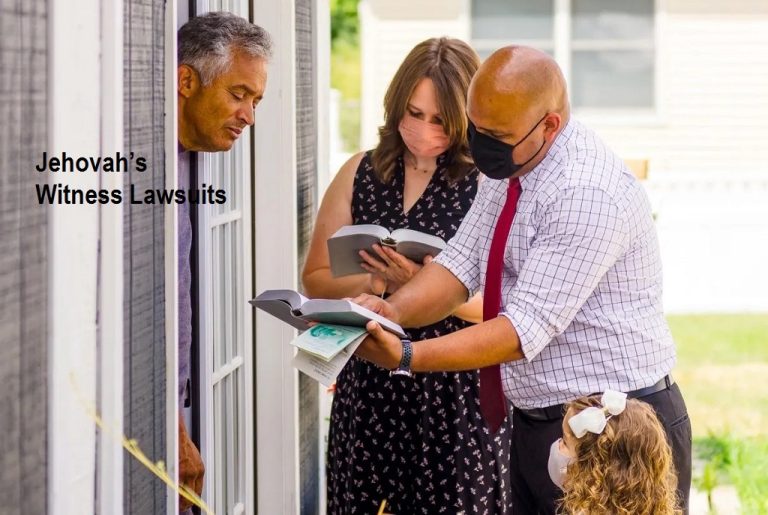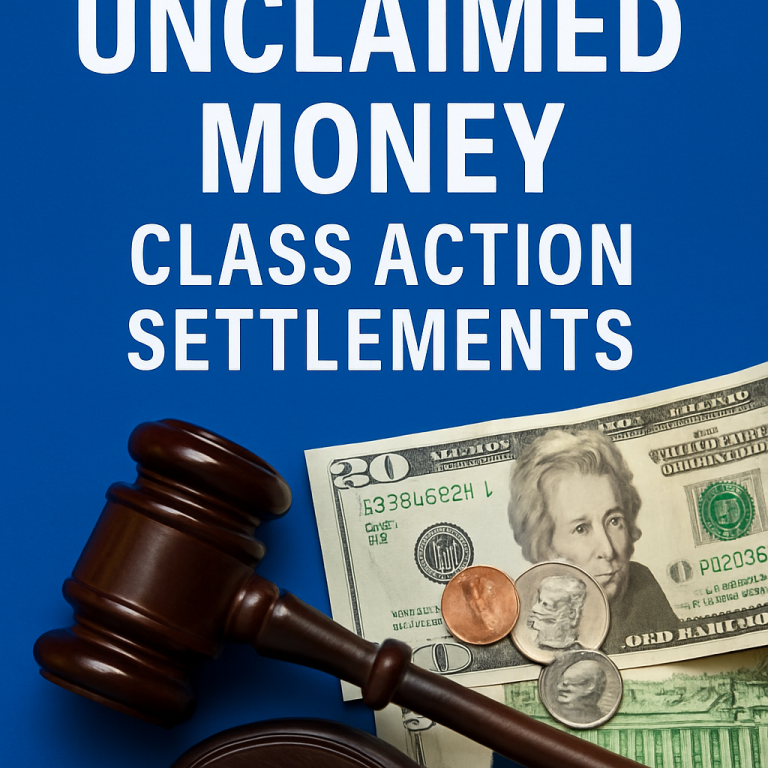Have you followed the recent Paraquat Lawsuits Settlement Updates? This legal battle has captured national attention. Thousands of victims are now stepping forward. They claim paraquat exposure caused them to develop Parkinson’s disease. The herbicide, once hailed for its weed-killing power, now faces intense legal and scientific scrutiny. The lawsuits say manufacturers knew the dangers. But they failed to warn the public. Victims are farmers, laborers, and rural families. Many suffer from life-changing symptoms. Others mourn loved ones lost to related illnesses.
Paraquat Lawsuit Settlement Updates are more than court cases. They represent a fight for truth, safety, and justice. People want answers, demand compensation, and seek reform in how chemical safety is handled. This article explores every significant detail you need to know. From exposure routes to settlement tiers, it’s all here. Stay updated and understand your rights as this story unfolds.
What Is Paraquat and Why Is It in Legal Trouble?
Paraquat, also called paraquat dichloride, is a fast-acting herbicide. It has been used for over 60 years to control weeds and grasses. Despite its effectiveness, it remains highly toxic to humans and animals. Many countries, including China, have banned it entirely. The United States still permits its use, but under strict EPA regulations. Health advocates and researchers have raised alarms about long-term risks. They say paraquat exposure may be linked to serious illnesses, especially Parkinson’s disease.
Thousands of lawsuits claim that manufacturers knew the dangers. Plaintiffs argue that companies failed to warn users. Let’s dive deeper into how exposure happens and who is most at risk.
How Are People Getting Exposed to Paraquat?
Many people come in contact with paraquat without realizing its danger. The chemical spreads through farming activities and environmental contamination. Let’s examine who gets affected and how.
Farmers who spray it on crops
Farmers are closest to paraquat. They mix it, load it into sprayers, and apply it to fields. Despite protective gear, long-term use increases the chances of health issues. Repeated exposure builds up toxins in the body.
Workers who mix or transport it
Factory workers and truck drivers also face risks. They handle containers, breathe vapors, and clean spills. In some facilities, poor ventilation increases contact. Their health suffers due to frequent chemical handling.
Families living near treated fields
Rural families near sprayed fields breathe contaminated air. Paraquat particles can travel through wind and settle on homes. Dust and soil carry traces that children and adults may inhale.
Food grown in treated soil
Even food may contain residues. Washing removes some but not all traces. Experts debate how much exposure comes from diet. But over time, eating contaminated crops may harm health.
Water sources near farming zones
Rain washes paraquat into nearby water. Streams and groundwater carry it into homes. Residents who drink or bathe in this water face exposure. Some areas lack proper monitoring, making the risk worse. As awareness grows, so does the demand for justice. People who suffer now want answers and compensation.
Why Are Victims Filing Lawsuits?
Victims say manufacturers hid paraquat’s true risks. They claim these companies knew about the link to Parkinson’s disease. But they didn’t warn users or offer safer alternatives. Many plaintiffs are lifelong farmers or workers from agricultural regions. Some can no longer work. Others struggle with memory loss, tremors, and emotional distress. Medical bills and lost income add to their burden. The lawsuits demand justice. They seek money for treatment, suffering, and lost livelihoods. Some also push for punitive damages to hold companies accountable. Now let’s look at the companies under fire.
Who Are the Main Companies Being Sued?
Two major corporations are at the center of most lawsuits. Let’s explore their roles and the claims against them.
Syngenta AG made and sold paraquat products
Syngenta manufactures Gramoxone, a leading paraquat herbicide. The Swiss-based company markets it worldwide. Internal documents suggest Syngenta downplayed serious health risks. Critics say it prioritized profits over safety.
Chevron USA Inc. helped distribute them in the U.S.
Chevron handled distribution in the U.S. for decades. Its name appears on many paraquat labels. Plaintiffs argue Chevron had a duty to warn users. They claim it failed to ensure safe use and packaging.
Together, these companies face mounting legal pressure. Public scrutiny has intensified. The spotlight now shines on their responsibility and accountability.
What Makes Parkinson’s Disease a Key Factor?
Parkinson’s disease is a progressive brain disorder. It impacts movement, speech, and mood. There is no known cure. Recent research links paraquat to this illness. Scientists say it may trigger brain damage. The chemical causes oxidative stress, which kills dopamine-producing neurons. Less dopamine leads to tremors, stiffness, and slow movement.
Key studies back this claim:
- The National Institutes of Health found paraquat users were 2.5 times more likely to develop Parkinson’s.
- A 2011 research paper called it “one of the most dangerous herbicides still in use.”
Although proving causation is tough in court, this research supports many legal claims. Next, let’s look at how big this legal fight has become.
How Many Lawsuits Are Active Right Now?
As of 2025, more than 6,000 cases are active in U.S. federal courts. Most are combined in a multidistrict litigation (MDL) based in Illinois. This setup streamlines similar cases under one judge.
Many state courts also see rising filings. Plaintiffs include:
- Farmers and laborers with Parkinson’s
- Families filing wrongful death suits
- Rural residents exposed to contamination
Lawyers expect thousands more cases soon. Awareness keeps growing. As people connect symptoms to exposure, they’re taking legal action.
With so many legal challenges, people now wonder what resolution might look like.
What Are the Latest Paraquat Lawsuits Settlement Updates?
Recent court events have shaped the legal outlook. Here’s what’s happened so far and what may come next.
The first trial was delayed in 2022
Early court dates were postponed. Judges needed time to review documents and expert evidence. This frustrated plaintiffs eager for justice.
A bellwether trial was expected in 2023
Bellwether trials test the strength of both sides. These early verdicts influence later settlements. Some were planned but delayed again due to motions and challenges.
Expert witnesses faced scrutiny in 2024
Defendants challenged plaintiff experts. They questioned scientific methods and conclusions. Judges had to decide whether to allow this testimony.
Judges excluded some key testimony
In late 2024, one major expert was dismissed. Judges said his research methods lacked credibility. Though a setback, other experts remain involved.
May 2025 Updates: Settlement Talks Gain Momentum
Negotiations have intensified as of May 2025. Reports suggest Syngenta and Chevron are in active talks with lead plaintiffs. Sources say settlement offers may reach hundreds of millions. Judges have urged both sides to avoid further delays. Legal analysts predict a potential resolution by early 2026.
Despite delays, talks continue. Legal experts predict a global settlement may arrive within two years.
What Kind of Compensation Can Victims Expect?
Settlements remain unofficial. Still, legal analysts suggest a three-tier system for payout expectations.
| Tier Level | Expected Range |
|---|---|
| Tier 1 | $400,000 to $1,000,000+ |
| Tier 2 | $150,000 to $300,000 |
| Tier 3 | $20,000 to $150,000 |
Each tier reflects severity and proof. Higher payouts go to:
- Younger victims
- Clear exposure records
- Advanced Parkinson’s
Lower tiers include milder symptoms or less solid evidence. Every case is unique. Final settlement terms may differ. But this table offers a basic guide.
As we look ahead, where do things go from here?
What Legal Challenges Do Plaintiffs Face?
Plaintiffs in this legal trial and settlement scenario are facing many challenges and hardships due to the lack of legal support and accurate advisory. They can play their role if cope up with following challenges.
Expert testimony plays a big role
Plaintiffs need scientists to explain how paraquat causes Parkinson’s. Courts closely examine this testimony. Inconsistent or unsupported science can weaken a case. Expert credibility is vital.
Courts recently blocked some scientific witnesses
The exclusion of a top plaintiff expert in 2024 set a new tone. Judges said his approach was unreliable. That loss made it harder for lawyers to argue their cases. They must now rely on remaining experts.
Judges said their methods lacked strong support
The issue was not necessarily the conclusion. Instead, it was how the expert reached it. Courts require clear, peer-reviewed methods. Any flaws can lead to disqualification, slowing down progress.
Still, many cases continue with valid evidence. Lawyers adjust strategies to fit changing court standards.
What Should You Do If You Think You Have a Case?
Time matters. If you think you were exposed, act now:
- Talk to a lawyer who handles toxic exposure cases
Only a specialized attorney can navigate these complex lawsuits. They understand science, law, and medical records.
- Gather all your medical records
You’ll need proof of your Parkinson’s diagnosis. Doctors, therapists, and neurologists can all help document symptoms.
- Find proof of where and how you used paraquat
Job records, farm logs, and photos can prove exposure. Witness statements also help.
- File your claim before deadlines expire
Statutes of limitations vary by state. Missing them means you cannot sue. Start early to protect your rights.
How Do Lawyers Prove These Cases?
Lawyers are the backbone of any legal trial or settlement case. Victims depend on the legal advisory, if your legal worker or attorney is capable enough, he can do miracles for you in winning the case or getting compensations. A reputable attorney can do a lot of things to help you in the court. Here are some pinpoints that a lawyer can do for you.
Medical proof of Parkinson’s diagnosis
Doctors must confirm you have Parkinson’s. They must also show it is not from other causes. This includes family history, age, and other health conditions.
Work or living history near paraquat use
Proof of exposure is critical. Lawyers build a timeline showing where and when you were near paraquat. Maps, witness accounts, and job data can help.
Any direct contact with the herbicide
If you handled paraquat yourself, it strengthens your claim. Even indirect exposure can count, but direct use offers stronger evidence.
Manufacturer labels and safety data
Lawyers often show that warning labels were not clear. They also use company emails and safety records to argue negligence. These documents can reveal a pattern of hiding risks.
How Do Bellwether Trials Affect You?
Bellwether trials are sample cases. Courts use them to test legal arguments. Early results may shape future settlements. A big win can push companies to settle more claims. A loss may delay things. So far, the battle is ongoing. The first bellwether outcome will help predict final payouts. It will also influence how other cases move forward. That’s why plaintiffs and defendants both watch these trials closely.
Are Settlements Guaranteed?
No, nothing is certain. Some cases may end in court losses. Others may settle for large sums. Each lawsuit depends on evidence, timing, and legal skill. But mass settlements are likely. Thousands of people are involved. Courts may push for quicker results. Legal experts think settlements will happen. Companies often avoid jury trials that may cost them more. Negotiations may continue in private before any public announcements.
What Makes This Lawsuit So Unique?
This case combines science, farming, and health. It raises public safety concerns and challenges corporate behavior. It may change how dangerous chemicals are regulated. People across the country are paying attention. The mix of scientific proof, personal suffering, and industrial practices makes it stand out. It is also one of the largest chemical exposure lawsuits in recent history.
What Does the Future Hold for Paraquat Lawsuits?
Expect more updates in coming months. Watch for trial outcomes and new rulings. Settlement deals may become public. The legal battle continues to grow. Every ruling matter to the next case. Some experts predict a major resolution in 2025. This could take the form of a global settlement plan. Until then, courts will manage cases one by one, using bellwether results as guides.
Why Should You Stay Updated?
New evidence appears often. Courts may reverse past rulings. Medical research may add support. All these affect your case. Staying informed helps you act wisely. Also, laws and court rules can change. A good case today might not qualify tomorrow. That’s why regular updates are key for anyone affected.
Final Words on Paraquat Lawsuits Settlement Updates
The paraquat lawsuits represent a major legal battle over public health. Thousands of people are seeking justice. Their goal is to hold large corporations accountable. They want compensation for illnesses that changed their lives. Scientific evidence continues to support claims about paraquat’s dangers. Although court delays and expert challenges have created hurdles, plaintiffs are pushing forward. Settlement talks offer hope for relief and accountability.
As 2025 unfolds, Paraquat Lawsuits Settlement Updates remain critical to watch. The outcomes may change agricultural safety standards and influence chemical regulations. More importantly, they may bring long-awaited justice to victims and families. Stay informed. Know your rights. And if you believe you’ve been affected, legal options are available.
Frequently Asked Questions About Paraquat Lawsuits Settlement Updates
What is the status of Paraquat lawsuits today?
There are thousands of active lawsuits in U.S. federal and state courts. The vast majority of the cases have been consolidated into an MDL (multidistrict litigation) in Illinois. As of May 2025, there are active settlement negotiations. Legal observers predict a potential resolution by early 2026.
Who is eligible to file a Paraquat lawsuit?
Anyone who has been diagnosed with Parkinson’s disease following exposure to paraquat might be eligible. This can include farmers, farm workers, and people living close to sprayed locations. Relatives of deceased victims can also bring wrongful death lawsuits.
Is there scientific evidence that connects Paraquat with Parkinson’s disease?
Yes. Research indicates paraquat can lead to oxidative stress in the brain. This action destroys dopamine-producing neurons, resulting in Parkinson’s disease. Research by the NIH and other organizations confirms this connection.
What are the settlement payout tiers?
Courts may use a three-tier compensation system based on severity:
Tier 1: $400,000 to $1,000,000+
Tier 2: $150,000 to $300,000
Tier 3: $20,000 to $150,000
Higher tiers require stronger evidence and more advanced symptoms.
Which firms are sued in Paraquat cases?
The primary firms involved in suits include Syngenta AG and Chevron USA Inc. Syngenta produces the weed killer Gramoxone. Chevron marketed paraquat products in the United States. Both are accused of not warning users of health hazards.
What have been the delays in these lawsuits?
A number of factors led to delays:
- Early trial scheduling problems in 2022
- Legal motions that postponed bellwether trials in 2023
- Conflicts regarding expert witness testimony in 2024
- Court orders excluding essential witnesses
- Continuing settlement talks in 2025
In spite of them, the cases are moving forward.
Will there be an international settlement?
Most likely, yes. Legal analysts anticipate a mass settlement. Judges have urged both sides to resolve. A global settlement could come before the close of 2026.
What do I do if I believe I am eligible?
You should see an attorney who specializes in toxic exposure or mass tort cases. Numerous law firms provide free consultations. Quick action can obtain stronger evidence and a greater possibility of compensation.
Ayesha Awais is a content writer for JudicialNexus.com, covering accident reports, injury-related news, lawsuits, and public safety updates. All content is informational in nature and based on publicly available sources.




